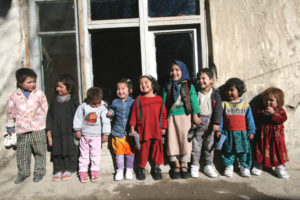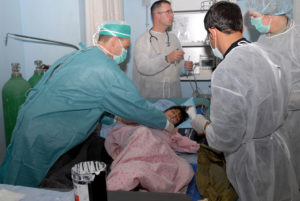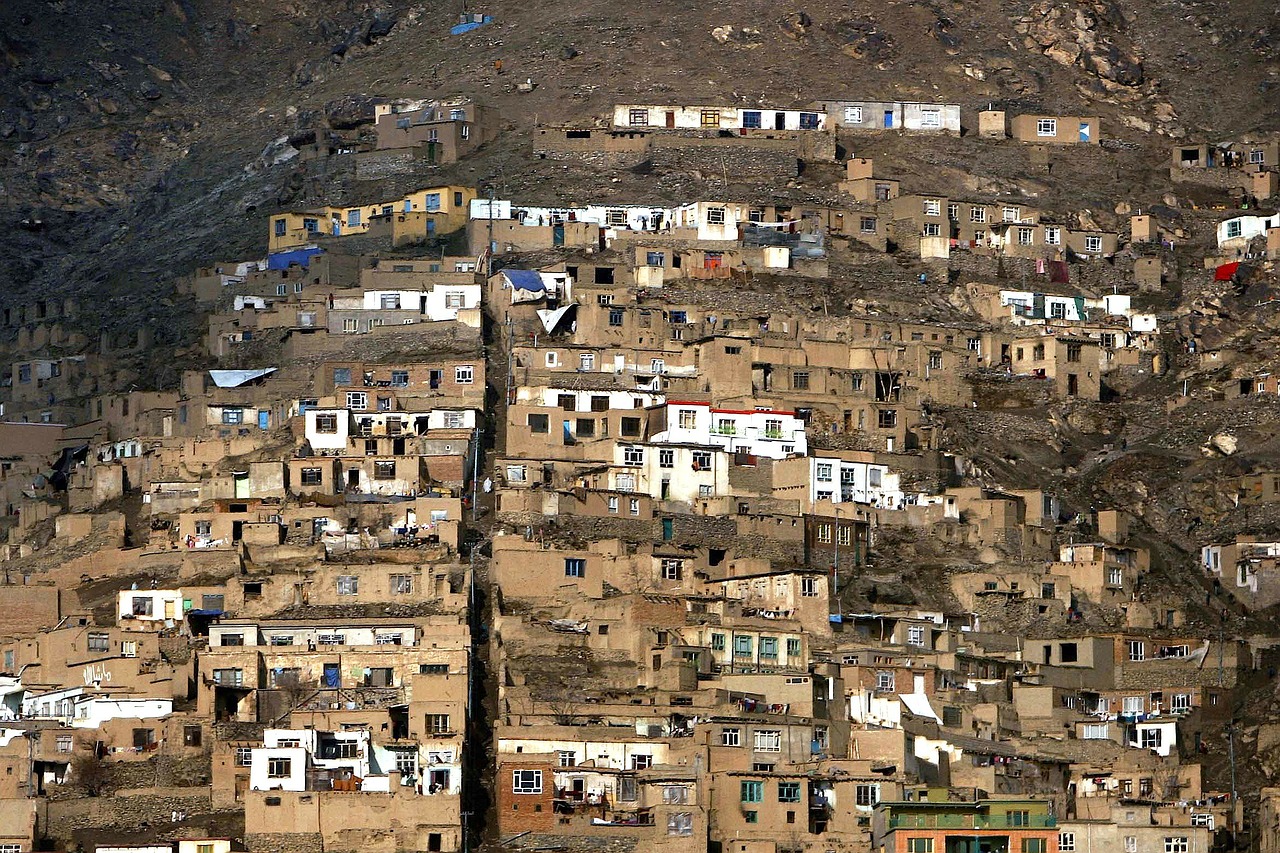In the underprivileged Kabul neighborhoods of Demazang, Yaka-Beep, and Tchelestoun, the French nongovernmental organization Afghanistain Demain (Afghanistan Tomorrow) operates three centers that deliver education, health services, and emergency aid to children who work on the streets in order to support their families. Afghanistan Demain founder Ehsan Mehrangais—a French Dominican who moved to Kabul in 1968 to perform research and subsequently fled to France during the Soviet-Afghan War—returned to Afghanistan in 2001 and established Afghanistain Demain in response to the great number of children without stable homes that he witnessed in Kabul. Afghanistan Demain initially consisted of multiple Padar (meaning “father” in Dari) houses that provided family-based care for 15 boys between the ages of 7 and 15.
In 2003, Afghanistan Demain launched the first of its day centers and, with the closure of the last Padar house in 2010, shifted its focus to the protection and accelerated education of children in need who have fallen behind in their formal schooling because they have to work. Since its inception, Afghanistan Demain has taught more than 3,000 children to read and write, and has helped approximately 1,700 to re-enter public school.
Afghanistan Demain, which is not affiliated with any particular religion, offers education and support to children who are underserved irrespective of their cultural or ethnic background. At its Kabul centers, the organization employs an all-Afghan staff of directors, teachers, social workers, and security personnel who are assisted by a volunteer administrative team in France.
Preparing Working Children to Re-Enter School

Image courtesy Nasim Fekrat | Flickr
Every day, each of Afghanistan Demain’s three centers serves 120 students ranging in age from 8 to 16 years old. Three separate sessions, with 40 students each, are taught between 7 a.m. and 7 p.m., leaving children with time for their jobs. Designed to prepare students to pass an entrance exam for re-enrollment in a government-run school, instruction at the centers follows the same textbooks and curricula adopted by the Ministry of Education. Among the subjects offered are Dari and Pashto, religion, arithmetic, science, geography, and history.
The curriculum varies depending on the age of the children upon their arrival at the centers. Teenagers spend the majority of their time studying and completing the equivalent of three grade levels in one year. Younger students generally complete two grade levels per year because they need more time to engage in social development and recreational activities.
The amount of study time required before a child is ready to take a school entrance exam ranges from one to three years, due to the fact that some children are further behind than others in their level of educational attainment. After students matriculate at a public school, a teacher from Afghanistan Demain continues to monitor their progress in order to facilitate a smooth transition to the new learning environment.
Training Students for Economic Independence
In an effort to meet the needs of young adults seeking a viable career, Afghanistan Demain has set up vocational training programs focusing on areas such as cosmetology and office skills at its center in Tchelsetoun. Within the first two years of the cosmetology program, 150 students achieved professional qualifications, including two entrepreneurs who started their own personal aesthetics business in Kabul.
The office worker program enrolls 40 students annually in a one-year course. Through clerical skills training and English language instruction, the program prepares students to pursue job opportunities with employers who operate internationally.
Caring for Children’s Health

Image courtesy Resolute Support Media | Flickr
With an understanding of the precarious conditions in which street children live, Afghanistan Demain aims to ensure their physical well-being through health and nutritional services. Since the children typically lack reliable access to food, the centers offer a healthy meal each day to prevent malnutrition. The students, who are otherwise unable to afford medical care, receive regular checkups performed by physicians from the Afghan health services organization Ibn Sina. Children with severe conditions requiring further intervention can obtain referrals to the Mother-Child Hospital through the Chain of Hope, an international volunteer network of medical professionals.
Social Support and Community Outreach
Afghanistan Demain’s social workers undertake outreach to bring new students to the centers and watch over their mood and behavior. For students with personal difficulties that may disrupt their education, a social worker will approach family members to discuss a possible resolution to the problem.
Afghanistan Demain also hosts informational “family meetings” every six weeks to promote child safety and healthy development throughout the communities in which it operates. During these sessions, a qualified guest speaker teaches parents and children about issues ranging from land mine awareness to proper waste disposal. Additionally, staff educators aim to reduce the transmission of disease by working with parents to ensure that they reinforce at home those hygienic practices taught to students at the centers.
Providing Families with Food and Clothing
During harsh winters, Afghanistan Demain collaborates with the Embassy of France and the Interministerial Food Aid Committee to distribute emergency aid to families in the Demazang, Yaka-Beep, and Tchelestoun communities surrounding its centers. Staff social workers identify those families who are most urgently in need, and they receive enough food and fuel to last through the winter. The most recent distribution supplied 900 families with rice, beans, flour, sugar, oil, and coal for heating.
Often, the students of Afghanistan Demain lack warm clothing to protect themselves against the bitter cold during the wintertime in Kabul. Thus, the organization also distributes winter clothing when its means permit. Afghanistan Demain disbursed clothing to 360 children in the winter of 2013-2014 that included parkas, sweaters, shoes, scarves, and gloves.

